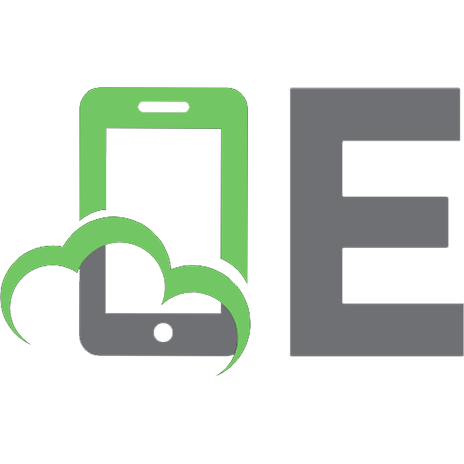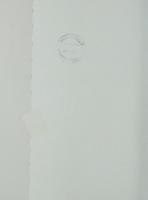Haynes Toyota Tacoma, 4Runner & T100 Automotive Repair Manual 1563922991, 9781563922992
“"Models covered: 2WD and 4WD Toyota Tacoma (1995 thru 1998), 4Runner (1996 thru 1998) and T100 (1993 thru 1998).&q
139 90 30MB
English Pages 426 Year 1998
Recommend Papers

- Author / Uploaded
- Robert Maddox
- Mike Stubblefield
- Similar Topics
- Technique
- Transportation: Cars, motorcycles
File loading please wait...
Citation preview
TOYOTA TACOMA,
|W
lull
4RUNNER &T100 Tacoma
(1995 thru 1998) 4Runner (1996 thru 1998) T100 (1993 thru 1998) All
2WD
and
4WD
models
Automotive Repair Manual
Digitized by the Internet Archive in
2014
https://archive.org/details/toyotatacoma4run00madd_0
Toyota
Tacoma, 4Runner
&T100 Automotive Repair
Manual by Robert Maddox, Mike Stubblefield and John H Haynes Member
of the Guild of Motoring Writers
Models covered:
2WD
and 4WD Toyota Tacoma (1995 thru 1998), 4Runner (1996 thru 1998) and T100 (1993 thru 1998)
ABCDE FGHU
KLMNO PQRST
Haynes Publishing Group Sparkford Nr Yeovil Somerset BA22 7JJ England
Haynes North America, 861 Lawrence Drive
Newbury Park 91320 USA
California
Inc
About Its
this
manual
purpose The purpose
of this
manual
is
to help
you get the best value from your vehicle. It can do so in several ways. It can help you decide what work must be done, even if you choose to have it done by a dealer service department or a repair shop; it provides information and procedures for routine maintenance and servicing; and it offers diagnostic and repair procedures to follow when trouble occurs.
We
hope you use the manual to tackle the work yourself. For many simpler jobs, doing it yourself may be quicker than arranging an appointment to get the vehicle into a
shop and making the trips to leave it and pick it up. More importantly, a lot of money can be saved by avoiding the expense the shop
must pass on to you to cover its labor and overhead costs. An added benefit is the sense of satisfaction and accomplishment that
you
feel after
doing the job yourself.
tion captions pinpoint the pertinent Section
means
that Section. That
paragraph) 2 within
Procedures, once described
When
is,
the illustration refers to
Chapter.
References to the vehicle
assume you
left
or right side of the
are sitting
in
Even though we have prepared this manual with extreme care, neither the publisher nor the author can accept responsibility any errors mation given.
for
in,
or omissions from, the infor-
properly complete a procedure or information which
will
provides a special procedure or special steps which must be taken while completing the is found. Not heeding a Caution can result in damage to the assembly
being worked on.
WARNING provides a special procedure or special steps which must be taken while completing the is found. Not heeding a Warning can result in personal injury.
procedure where the Warning
Acknowledgements We are grateful for the help and cooperation of the Toyota Motor Company for their assistance with technical
information
and certain illustrations. Technical consultants who contributed to this project include James Cota and John Wegman. Wiring diagrams were provided exclusively for Haynes North America, Inc. by Valley Forge Technical Communications.
©
Haynes North America,
Inc.
1998
With permission from J.H. Haynes & Co. Ltd.
A book
in
the Haynes Automotive Repair Manual Series
Printed
in
the U.S.A.
reserved. No part of this book may be reproduced or transmitted in any form or by any means, electronic or mechanical, including photocopying, recording or by any information storage or retrieval system, without permission in writing from the copyright holder.
All rights
ISBN
1
56392 299
Library of
1
Congress Catalog Card Number 98-85029
While every attempt is made to ensure that the information in this manual is correct, no liability can be accepted by the authors or publishers for loss, damage or injury caused by any errors in, or omissions from, the information given.
98-416
the driver's
seat, facing forward.
procedure where the Caution
A Warning
neces-
number. Cross references given without use word "Chapter" apply to Sections and/or paragraphs in the same Chapter. For example, "see Section 8" means in the same
CAUTION A Caution
the text,
it's
of the
NOTE A Note provides information necessary to make the procedure easier to understand.
in
sary to refer to another Chapter, the reference will be given as Chapter and Section
The manual is divided into Chapters. Each Chapter is divided into numbered Sections, which are headed in bold type between horizontal lines. Each Section consists of consecutively numbered paragraphs. At the beginning of each numbered Section you will be referred to any illustrations which apply to the procedures in that Section. The reference numbers used in illustra-
illustration 3.2
(or
are not normally repeated.
Using the manual
and the Step within
Section 3 and Step that Section.
1
vUl
1
1
ID
inirouuciory pages About this manual Introduction to the Toyota Tacoma, 4Runner and T100 Vehicle identification numbers
Buying parts Maintenance techniques, tools and working Jacking and towing Booster battery (jump) starting Automotive chemicals and lubricants Conversion factors Safety first! Troubleshooting
Chapter
facilities
.
0-4 0-5 0-6 0-6 0-12 0-12 0-13
U-14 0-15 0-16
1
Tune-up and routine maintenance
Chapter 2
Part
A
Four-cylinder engines
Chapter 2 V6 engines
Part
Chapter 2
Part
1-1
2A-1
B 2B-1
C
General engine overhaul procedures
2C-1
Chapter 3 Cooling, heating and
air
conditioning systems
3-1
Chapter 4 Fuel
4-1
and exhaust systems
Chapter 5 Engine
electrical
5-1
systems
Chapter 6 Emissions and engine control systems
Part A Manual transmission
6-1
Chapter 7
Chapter 7
Part
7A-1
B 7B-1
Automatic transmission
Chapter 7
Part
C 7C-1
Transfer case
Chapter 8 8-1
Clutch and driveaxles
Chapter 9 9-1
Brakes
Chapter 10 ^i icnpncion loiLM OUojJCI I
Chapter
anH QwctomQ io olCCl iy oyold \\J Qtoorinn dl
ll
1
10-1
1
11-1
Body
Chapter 12 Chassis
electrical
system
12-1
Wiring diagrams
12-23
Index
IND-1
Introduction to the Toyota T100,
Tacoma and 4Runner The T100 was manufactured beginning 1993 and is equipped with either the 2.4L or 2.7L four-cylinder engine or the 3.0L or 3.4L V6 engine. The Tacoma was manufactured beginning in 1995 and is equipped with in
either the 2.4L or 2.7L four-cylinder engine or
the 3.4L
V6 engine. The 4Runner was manuin 1996 through 1998 and
factured beginning is
equipped with
or the 3.4L All
either the 2.7L four cylinder
V6 engine.
engines are equipped with the Elec-
tronic Fuel Injection (EFI) system.
The engine drives the rear wheels through either a manual or automatic trans-
mission via a driveshaft and solid rear axle.
A
case and driveshaft are used to drive the front axle. All models are equipped with transfer
either
2WD or 4WD.
The dent:
it
front
suspension
is fully
indepen-
consists of upper and lower control
arms, and a stabilizer bar. T100 models use and shock absorbers; Tacoma 2WD models use coil springs and shock absorbers; Tacoma 4WD models and 4Runner models use an integral coil spring/shock absorber assembly. A solid axle at the rear is suspended by leaf springs and shock absorbers (T100 and Tacoma models) or coil
torsion bars
springs and shock absorbers (4Runner
mod-
4Runner models have four rear suspension arms (two upper and two lower arms) and a lateral rod. The steering box on 4WD T1 00 models is mounted to the left of the engine and is connected to the steering arms through a series of rods. The steering gear on all other models is a rack-and-pinion type and is connected to the steering knuckles by tie-rods. The front brakes are disc brakes and the rear brakes are drums, with power assist standard. Some models are equipped with els).
anti-lock brakes.
numbers
Vehicle identification and
On V6
vehicle manufactur-
on the
a continuing
are
Modifications
unpublicized process
in
Since spare parts manuals and lists are compiled on a numerical basis, the individual vehicle numbers are essential to correctly ing.
component
identify the
engines, the ID
oil filter
left
number
is
also located
side of the engine block, near the
(see illustration).
number Manufacturer Certification
The
required.
Vehicle Identification
Number
The Manufacturer affixed to the front
This very important identification number is stamped on a plate attached to the left side of the dashboard just inside the wind-
on the
driver's side of the vehicle (see
illustration).
The VIN also appears on the
shield
Vehicle Certificate of Title and Registration.
It
contains information such as where and when the vehicle was manufactured, the
model year and the body
style.
engines the
is
number on
ID
four-cylinder
located on a machined surface on
side of the block (see illustration).
left
tains the
name
Certification label
door
pillar.
The
is
plate con-
case and manual transmis-
number
is
stamped
into the
case of the component. Automatic transmission numbers are stamped onto ID plates (see illustrations).
of the manufacturer, the
month and year
of production, the
Vehicle Weight Rating
(GVWR) and the
Gross certifi-
cation statement (see illustration).
Vehicle Emissions Control Information (VECI) label and
Vacuum Schematic The emissions control information label and vacuum schematic is found under the
Engine identification number The engine
transfer
sion identification
label (VIN)
Transfer case and transmission identification
hood. This label contains information on the emissions control equipment installed on the vehicle, as well as tune-up specifications (see illustration).
The Vehicle visible
Identification
Number
(VIN) is
through the driver's side of the windshield
5VZ-FE Engine
* &
2200
D*Tt 07-97
»59
The engine
number on fourstamped on the left
identification
cylinder engines
is
side of the engine block
The engine identification number on V6 engines is also stamped onto a pad on the left side of the engine block, above the oil filter
TOYOTA FSR
BO;S !Ji
cartridge
The manufacturer's certification label is end of the driver's side door
affixed to the
1PORTANT VEHICLE INFORMATICS TOYOTA MOTOR CORPORATION
CATALYST
TWC
i7T=
« Soa
tejp iew motor yehoes psovseo that thb vb«i£ s out wtacoxeo . A STATE XWBUOUS cflVItSeYtatE Of I" >' THE CJAI. AS AC HAS AOT^EJ llDEB THE »jTK»>-< Cf Str ins ef=ec- >ca -mis aooa »ei« -he ca^kjmk st«no«s to SUM A STATE £0 OR A
TOGAUWWOB
Straw 5
OToSSe.
»S«EWT
»
una
aw suce'wc
SaeSWN HtS h£ BEEVC^TJ BMBLMff CEaiFirj-.
f s-A









